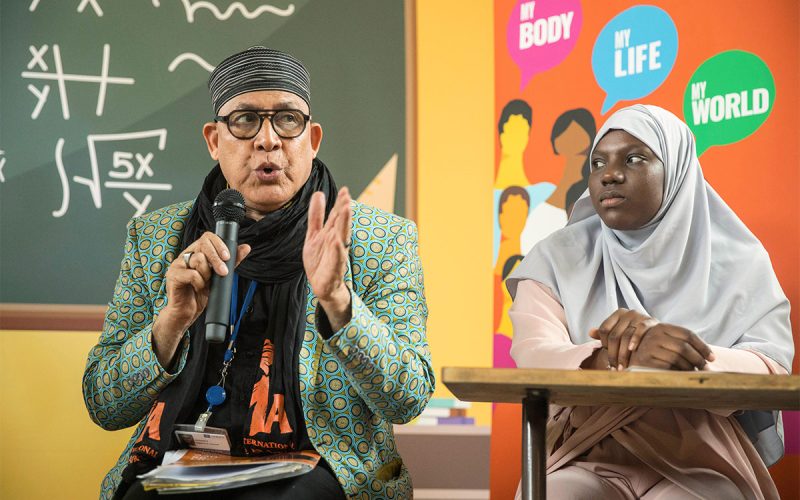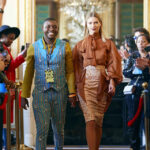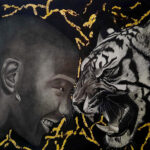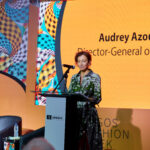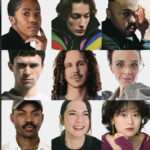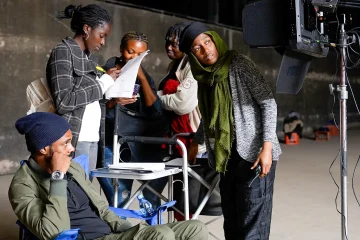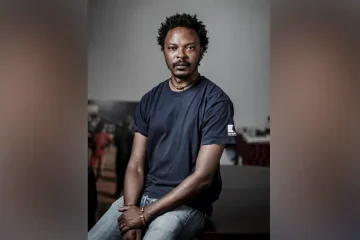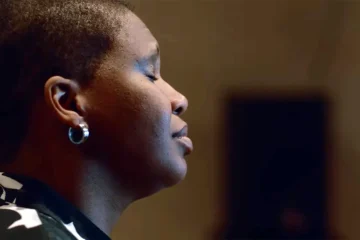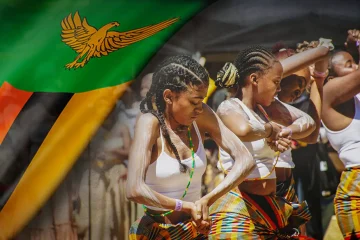PATRICK NELLE, BIRD
BORN Sidahmed Seidnaly, the designer and creative best known as Alphadi has been leading the charge since the 1980s for the global recognition of African creatives, especially fashion designers.
Having just attended the opening of an unprecedented African fashion exhibition at London’s Victoria&Albert museum in early July, bird story agency caught up with Alphadi en-route to his next event.
“I am going to Morocco now for a ceremony, and then I will fly to Niger. This is my life as an activist who has committed his existence to defend African creatives and to struggle for their worldwide recognition,” he confessed.
A notable fashion designer from Niger, Alphadi is part of a generation of African creatives who have succeeded in placing African fashion on the global stage and gaining worldwide recognition for their work.
“I was contacted two years ago by the Victoria&Albert Museum’s team. Since then, I’ve been working with them and collaborating for the project’s success,” Alphadi revealed.
From July 2022 to April 2023, a collection of African creations will be under the spotlight in London’s Victoria and Albert Museum (V&A). Showing mid- 20th century and contemporary works of African creatives, the African Fashion exhibition spans photographs, music, the visual arts, and textile and is unprecedented in its scale and ambition. Forty-five designers from over 20 African countries and over 250 objects have been on display in what has been called “the UK’s most extensive exhibition of African Fashion to date,” said V&A’s press release.
A considerable number of objects on display at the show were offered to the museum by some of the most iconic African personalities, including Alphadi himself.
A generation of artists that includes names like Shade Thomas-Fahm (born in 1933), Chris Seydou (1949-1994), Kofi Ansah (1951-2014), Naima Bennis (1940-2008), helped attract global interest in African creation and fashion. Of that generation, Alphadi is the only one still alive.
Born in Timbuktu, Mali, in 1957, the designer grew up in Niger and in 1978, after finishing school, flew to France, where he obtained a doctorate in tourism business.
In 1983, he launched his Alphadi fashion brand, after which he underwent further training at Chardon Savard studios in Paris and New York’s Fashion Institute of Technology.
During this time, Alphadi collaborated with designers like Chris Seydou, the Malian designer who put the traditional Malian textile Bogolanfani on the world stage. He also collaborated with high-profile western fashion industry names like Jean-Paul Gaultier and Paco Rabanne.
Of Tuareg descent, Alphadi’s work constantly draws inspiration from traditional Niger culture and aesthetics.
For him, the London exhibition is another testament to Africa’s riches and creativity; it shows that the continent continues to rise as a source of inspiration for contemporary global creation.
“Africa has been looted, Africa has been plagiarised. Events like this one come as part of the achievement of what I and so many others have been fighting for, for more than 40 years now,” Alphadi said.
“For decades, we’ve been struggling so that African fashion and designers gain the global recognition they deserve, which has not been an easy task,” he continued.
Though Alphadi is happy that things seem to be moving in the right direction, he said, he can’t help being overwhelmed with a deep feeling of frustration.
High-profile exhibitions like the one in London should regularly occur across Africa, he said.
“What is happening now is that Africa’s fashion capitals are somewhere in Europe, instead of in Africa. African fashion should shine globally from Africa, not from London, Paris, or New York.”
That was his purpose in 1998 when he founded the FIMA, the International Festival of African Fashion. That same year, the maiden edition of the gathering took place in the Tiguidit Desert in Niger.
The event was created to showcase and promote the works of African designers across Africa and to give Africa and its designers the place they deserve in the world fashion industry.
The event took place against all odds, as Alphadi faced many challenges to make his dream come true. Niger remains a country with an overwhelmingly Muslim majority, and fashion design is sometimes met with opposing views and bias.
“I was fought against, and I’m still fighting a lot today, but I stand firm. Beauty has no religion,” he stated.
Today, the FIMA is perhaps Africa’s most iconic fashion show. Since its debut, the show has been held 13 times, attracting dozens of both African and international designers and contributing to launching the careers of so many other young stylists. Alphadi believes it is time for wealthy Africans and African corporates to support their own design ecosystem.
“The lack of financial support and the lack of sponsors or patrons who invest in promoting African creation is clearly what is preventing the rise of an African creative industry,” he said.
“Everywhere around the world, governments and local elites are betting on their own culture,” Alphadi asserted. Africa needs to do the same.
“It’s up to us to promote our African culture and fashion designers, not to Europeans or Americans,” he added.
Alphadi is nevertheless continuing his struggle for local recognition of African fashion. The “Magician of the Desert,” as he has been branded, is now looking forward to organising the FIMA 14th edition in November.

